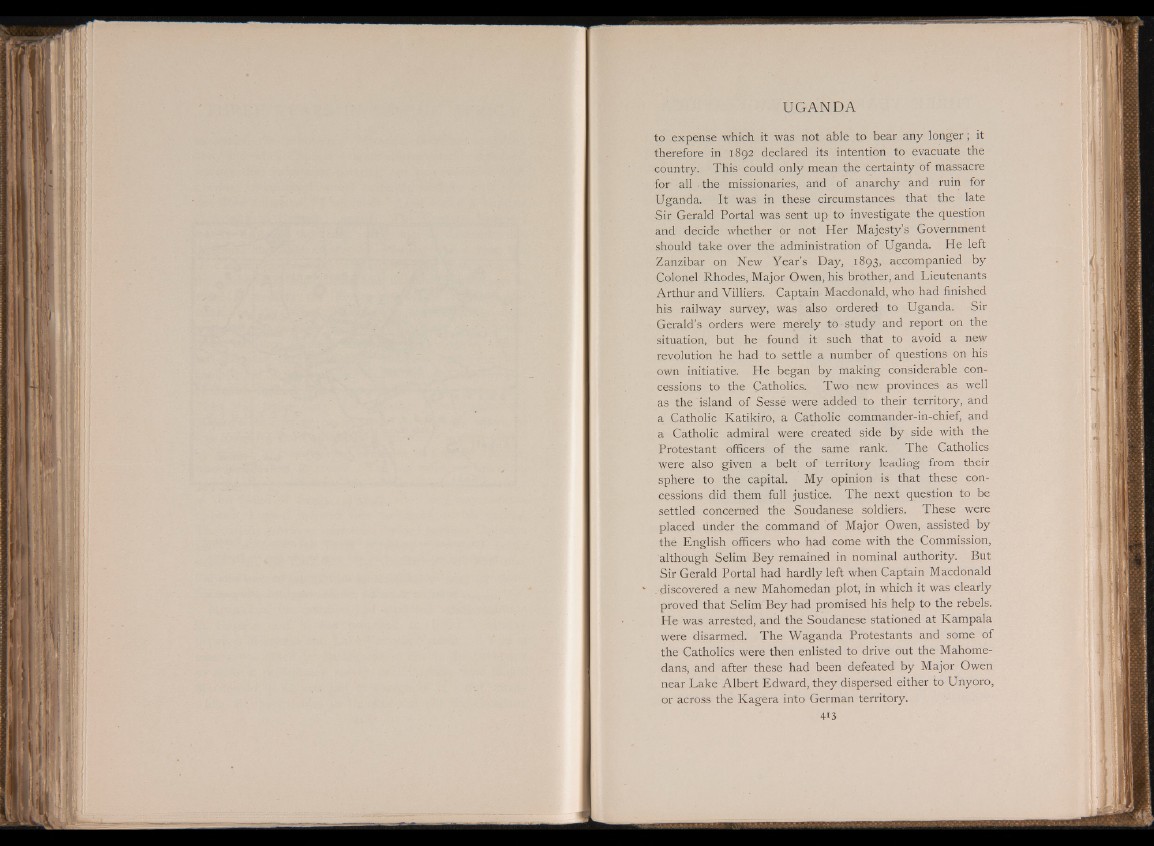
U G A N D A
to expense which it was not able to bear any longer; it
therefore in 1892 declared its intention to evacuate the
country. This could only mean the certainty of massacre
for all - the missionaries, and of anarchy and ruin for
Uganda. It was in these circumstances that the late
Sir Gerald Portal was sent up to investigate the question
and decide whether or not Her Majesty’s Government
should take over the administration of Uganda. He left
Zanzibar on New Year’s Day, 1893, accompanied by
Colonel Rhodes, Major Owen, his brother, and Lieutenants
Arthur and Villiers. Captain Macdonald, who had finished
his railway survey, was also ordered to Uganda. Sir
Gerald’s orders were merely to-study and report on the
situation, but he found it such that to avoid a new
revolution he had to settle a number of questions on his
own initiative. He began by making considerable concessions
to the Catholics. Two new provinces as well
as the island of Sesse were added to their territory, and
a Catholic Katikiro, a Catholic commander-in-chief, and
a Catholic admiral were created side by side with the
Protestant officers of the same rank. The Catholics
were also given a belt of territory leading from their
sphere to the capital. My opinion is that these concessions
did them full justice. The next question to be
settled concerned the Soudanese soldiers. These were
placed under the command of Major Owen, assisted by
the English officers who had come with the Commission,
although Selim Bey remained in nominal authority. But
Sir Gerald Portal had hardly left when Captain Macdonald
' . discovered a new Mahomedan plot, in which it was clearly
proved that Selim Bey had promised his help to the rebels.
He was arrested, and the Soudanese stationed at Kampala
were disarmed. The Waganda Protestants and some of
the Catholics were then enlisted to drive out the Mahomedans,
and after these had been defeated by Major Owen
near Lake Albert Edward, they dispersed either to Unyoro,
or across the Kagera into German territory.